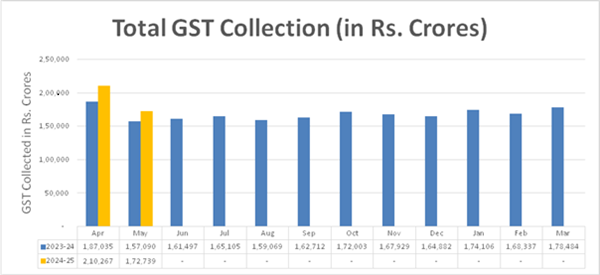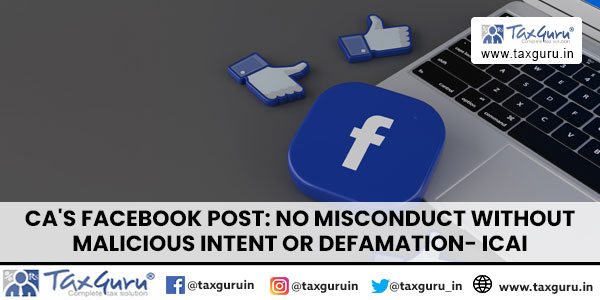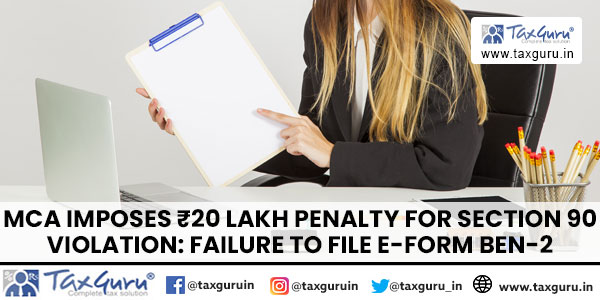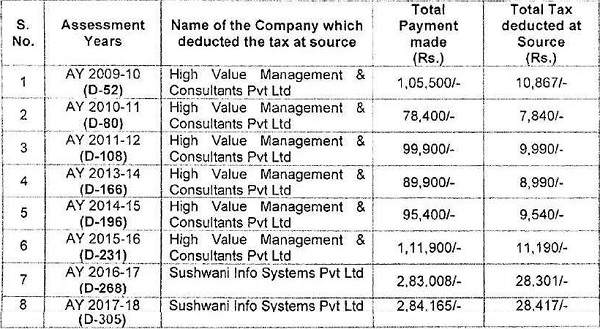
Company auditor’s report order (CARO) 2016
Earlier to Company auditor’s report order (CARO) 2016, CARO 2015 was issued by MCA in replacement of CARO 2003 issued by MCA in pursuance with the provision of section 227(4A) of companies act 1956. But now the similar order has been issued vide order no S.O 1228(E) dated 29th march 2016.
In accordance with the provision of section 143(11) of the companies act 2013, certain class or description of companies shall include a statement on certain specified matter.
These reporting requirement on specified matter now has been prescribed under the companies (auditor’s report) order 2016 issued by MCA.
APPLICABILITY
CARO 2016, is applicable from FY 2015-16 and CARO 2016 is applicable for Financial Year 2015-16, Financial Year 2016-17 and subsequent years and the matters specified therein shall be included in each report made by the auditor u/s 143 on the account of every company to which CARO 2016 applies.
IS IT MANDATORY TO COMPLY
YES, sec 143(11) clearly says that the central government may order for the inclusion of statement on specified matter in the auditor’s report for specified class or description of companies. Accordingly CARO 2016 is issued by CG in pursuance of sec 143(11) of companies act 2013 as an additional matter to be included in auditors report
THEREFORE, IT SHOULD BE APPLIED BY THE STATUTORY AUDITOR OF EVERY COMPANY ON WHICH IT APPLIES.
TYPE OF COMPANY COVERED UNDER CARO-2016:
CARO 2016 applies to every company including a foreign company as defines in clause (42) of section 2 of the Companies act 2013.
According to section 2(42) of companies act 2013 foreign company means any company or body corporate incorporated outside India which:
- Has a place of business in India whether by itself or through an agent, physically or through electronic mode and
- Conduct any business activity in India in any other manner
COMPANIES EXCLUDED FROM THE APPLICABILITY OF CARO:
CARO 2016 applies to all companies except certain categories or class of companies specifically exempted therein. Accordingly following class of companies are not required to comment on matters specified in CARO 2016.
1) Banking company as defined under section 5(c) of the banking regulation act, 1949
2) Insurance company as defined under the insurance act 1938
3) Company incorporated and licensed to operate under section 8 of Companies act 2013 (companies registered with charitable object)
4) A one person company (OPC) as defined under clause (62) of section 2 of CA 2013 (OPC means a company which has only one person as a member)
5) A small company under section 2(85) of the companies act 2013
NOTE: As per sec 2(85) of companies act 2013 small company means a company , other than a public company
a)Paid up share capital of which does not exceed Rupees 50 lakhs or such higher amount as may be prescribed which shall not be more than Rupees 5 crore AND
b) Turnover of which as per its last profit and loss account does not exceed 2 crore or such higher amount as may be prescribed which shall not be more than Rupees 20 crore.
The following company shall not qualify as a small company:
- A holding company or a subsidiary company
- A company registered under section 8
- A company or body corporate governed by any special act
6) The auditor of following Private Company are not required to comment on the matter prescribed under CARO-2016
i. A private company which is not holding or subsidiary company of a public company AND
ii. A private company having a paid up capital and reserve and surplus not more than Rupees 1 crore as on the balance sheet date AND
iii. A private company which does not have total borrowing exceeding rupees 1 crore from any bank and financial institution at any point of time during the financial year AND
iv. A private company which does not have total revenue exceeding rupees 10 crore during the financial year.
Note: Such revenue means revenue as disclosed in scheduled III to the Companies act 2013 and includes revenue from discontinuing operation.
Note: CARO shall also not apply to the auditor’s report on consolidated financial statement (CFS) of the company
MATTERS TO BE INCLUDED IN CARO:
FIXED ASSET [CLAUSE 3(I)]:
Proper record: Whether the company is maintain proper records showing full particulars including quantitative details and situation of fixed asset
Physical verification: whether these fixed asset have been physically verified by management at reasonable interval.
Whether any material discrepancies were noticed on such verification and if so, whether the same have been properly dealt with in the books of account
Note: whether the title deeds of immovable property are held in the name of the Company. If not provide the detail thereof.
Note: What constitute reasonable interval would depend upon the circumstances of each case. The management may decide the periodicity considering factors like nature of asset, value of asset etc.
Note: Plant and machinery embedded in land etc. are not considered as immovable property.
INVENTORY [CLAUSE 3(II)]
Physical verification: whether physical verification of inventory has been conducted at reasonable interval by the management.
Whether any material discrepancies has been noticed on such verification and if so, whether the same has been properly dealt with in the books of account
LOAN GIVEN BY COMPANY [CLAUSE 3(III)]:
Whether the company has granted any loans, secured or unsecured to companies, firms, LLP or other parties covered in the registered maintained under section 189 of the companies act 2013. If so,
Terms and conditions: Whether terms and conditions of the grant of such loan are not prejudicial to the company’s interest
Regular Recovery: Whether the schedule of repayment of principal and payment of interest has been stipulated and whether the repayments and receipts are regular
Steps for recovery: if the amount is overdue, state the total amount overdue , state the total amount overdue for more than 90 days and whether reasonable steps have been taken by the company for recovery of principal.
Note: Loan granted includes loan renewed during the year and also all loan having opening balances.
Note: While examining loan the auditor should also taken in to consideration the loan transaction that have been squared up during the year and report such transaction under this clause.
Note: An amount is considered to be overdue when the payment has not been received on the due date as per the lending arrangement.
LOAN TO DIRECTOR AND INVESTMENT BY THE COMPANY [CLAUSE 3(IV)]
In respect of loan, investment, guarantees and security whether provision of section 185 and 186 of the Companies act 2013 has been complied with. If not, provide the details thereof.
DEPOSITS [CLAUSE 3(V)]
In case, the company has accepted deposits, whether the following has been complied with:
- Directives issued by the reserve bank of India
- The provision of sec 73 to 76 or any other relevant provision of companies act 2013 and the rules framed thereunder and
- If the order has been passed by company law board (CLB) or National company law tribunal (NCLT) or RBI or any court or any other tribunal.
However, if any of the above not complied with, the nature of contraventions should be stated.
COST RECORDS [CLAUSE 3(VI)]
If central government has specified maintenance of cost records under sec 148(1) of companies act 2013 whether such accounts and records have been made and maintained.
STATUTORY DUES [CLAUSE 3(VII)]
Statutory dues for more than 6 months: Whether the company is regular in depositing undisputed statutory dues with the appropriate authorities including Provident fund, Employees state insurance fund, income tax, sales tax, service tax, duty of custom, duty of excise, value added tax, cess or any other statutory dues. If the company is not regular in depositing such statutory dues, the extent of arrears of outstanding statutory dues as at the last day of the financial year concerned for a period of more than six months from the date they become payable, shall be indicated by the auditor.
Dispute for tax and duty: in case dues of income tax and sales tax or service tax or duty of custom or duty of excise or value added tax have not been deposited on account of any dispute, then the amount involved and the forum where dispute is pending shall be disclosed.
Note: Wealth tax has been removed.
Note: Mere representation to the concerned department shall not constitute a dispute.
Note: Auditor should consider the matter as disputed only where there is a positive evidence or actions on the part of the company to show that it has not accepted the demand for payment of tax and duties.
Note: Penalty and interest levied under the respective laws would be covered within the term amount payable.
Note: Tax Demand that have been set aside are clearly not ‘dues’.
REPAYMENT OF LOAN [CLAUSE 3(VIII)]:
Whether the company has defaulted in repayment of loans and borrowing to a financial institution, banks, government or dues to debenture holders. If yes, the period and the amount of default to be reported.
NOTE: in case of defaults to bank, financial institution and government, lender wise details to be provided.
UTILISATION OF IPO AND FURTHER PUBLIC OFFER [CLAUSE 3(XI)]
Whether money raised by way of initial public offer or further public offer and the term loans were applied for the purpose for which those are raised. If not, the details together with delays and defaults and subsequent rectification, if any, as may be applicable, be reported
REPORTING OF FRAUD [CLAUSE 3(X)]
Whether any fraud by the company or any fraud on the company by its officers and employees has been noticed or reported during the year: if yes, the nature and the amount involved is to be indicated.
APPROVAL OF MANAGERIAL REMUNERATION [CLAUSE 3(XI):
Whether managerial remuneration has been paid or provided in accordance with the requisite approvals mandated by the provision of section 197 read with schedule 5 to the Companies act 2013. If not, state the amount involved and step taken by the company for securing refund of the same.
NIDHI COMPANY [CLAUSE 3(XII)]
Whether the Nidhi company has complied with the net owned funds to deposit in the ratio of 1:20 to meet out the liability and whether the Nidhi company is maintain 10% unencumbered term deposit as specified in the Nidhi rules 2014 to meet out the liability.
Note: Net owned funds are defined as the aggregate of paid up equity share capital and free reserve as reduced by accumulated losses and intangible asset appearing in the last audited balance sheet.
RELATED PARTY TRANSACTION [CLAUSE 3(XIII)]
Whether all transaction with the related party are in compliance with section 177 and 188 of the companies act 2013where applicable and the details have been disclosed in the financial statement etc. as required by the applicable accounting standard.
PRIVATE PLACEMENT OF PREFERENTIAL ISSUES [CLAUSE 3(XIV)]
Whether the company has made any preferential allotment or private placement of shares or fully or partly convertible debentures during the year Under review and if so, as to whether the requirement of section 42 of companies act 2013 have been complied with and the amount raised has been used for the purpose for which the funds were raised . If not, provide the detail in respect of the amount involved and the nature of non-compliance.
Non cash transaction [clause 3(XV)]
Whether the company has entered into any non-cash transaction with the director or person concerned with his and if so, whether the provision of section 192 of companies act 2013 has been complied with.
Register under RBI ACT 1934 [clause 3(XVI)]
Whether the company is required to be registered under section 45 IA of reserve bank of India act 1934 and if so, whether the registration has been obtained.
COMPARISON OF CARO 2015 AND CARO 2016:
| CARO 2015 | CARO 2016 |
| Fixed asset | Retained with some changes |
| Inventory | Retained with some changes |
| Loans to related parties (sec 189) | Retained with some changes |
| Adequate internal control | Deleted |
| — | Loan Guarantee Seurity |
| Deposits | Retained |
| Cost records | Retained |
| Statutory dues | Retained with some changes |
| Accumulated losses | Deleted |
| Repayment of loan | Retained with some changes |
| Guarantees | Deleted |
| Term loan | Retained with inclusion of IPO & FPO |
| Fraud | Retained with some changes |
| — | Managerial Remuneration |
| — | Nidhi company |
| — | Related party transaction |
| — | Private placement |
| — | Non cash transaction |
| — | NBFC |
UNFAVOURABLE OR QUALIFIED ANSWER:
- Where , in the auditor’s report , the answer to any of the question referred to in paragraph 3 is unfavorable or qualified, the auditor report shall also state the basis for such unfavorable or qualified answer, as the case may be.
- Where the auditor is unable to express any opinion on any specified matter, his report shall indicate such fact together with the reason as to why it is not possible for him to give his opinion on the same.
SOME IMPOTANT POINTS:
1) For private companies to be exempt all the 3 criteria must be satisfied. If even one of the criteria is not fulfilled it will trigger the applicability of CARO 2016
2) For private company to be exempt, total revenue would include revenue from operation and other income as disclosed in statement of profit and loss. Revenue would also include revenue from discontinuing operation.
3) CARO 2016 is also applicable to dormant company and specifically excludes small company.
4) Borrowing include borrowing from NBFC.
5) Private company being subsidiary of public company is not exempt from its applicability.
6) Borrowing does not include bank guarantees issued by company unless they have been invoked.
7) Non fund based credit facilities to the extent such facilities have devolved and have been converted in to fund based credit facilities should be considered as outstanding borrowing.
GUIDANCE NOTE:
The Institute of chartered Accountant of India has issued Guidance Note on CARO 2016 on April 23, 2016. It is divided into:
1) Relevant provision which contains Requirement of all clauses.
2) Audit procedures and Reporting which covers Procedure to be adopted by auditor.


























INFORMATIVE ARTICLE
Good Job……..Views increasing rapidly……God bless u…:)